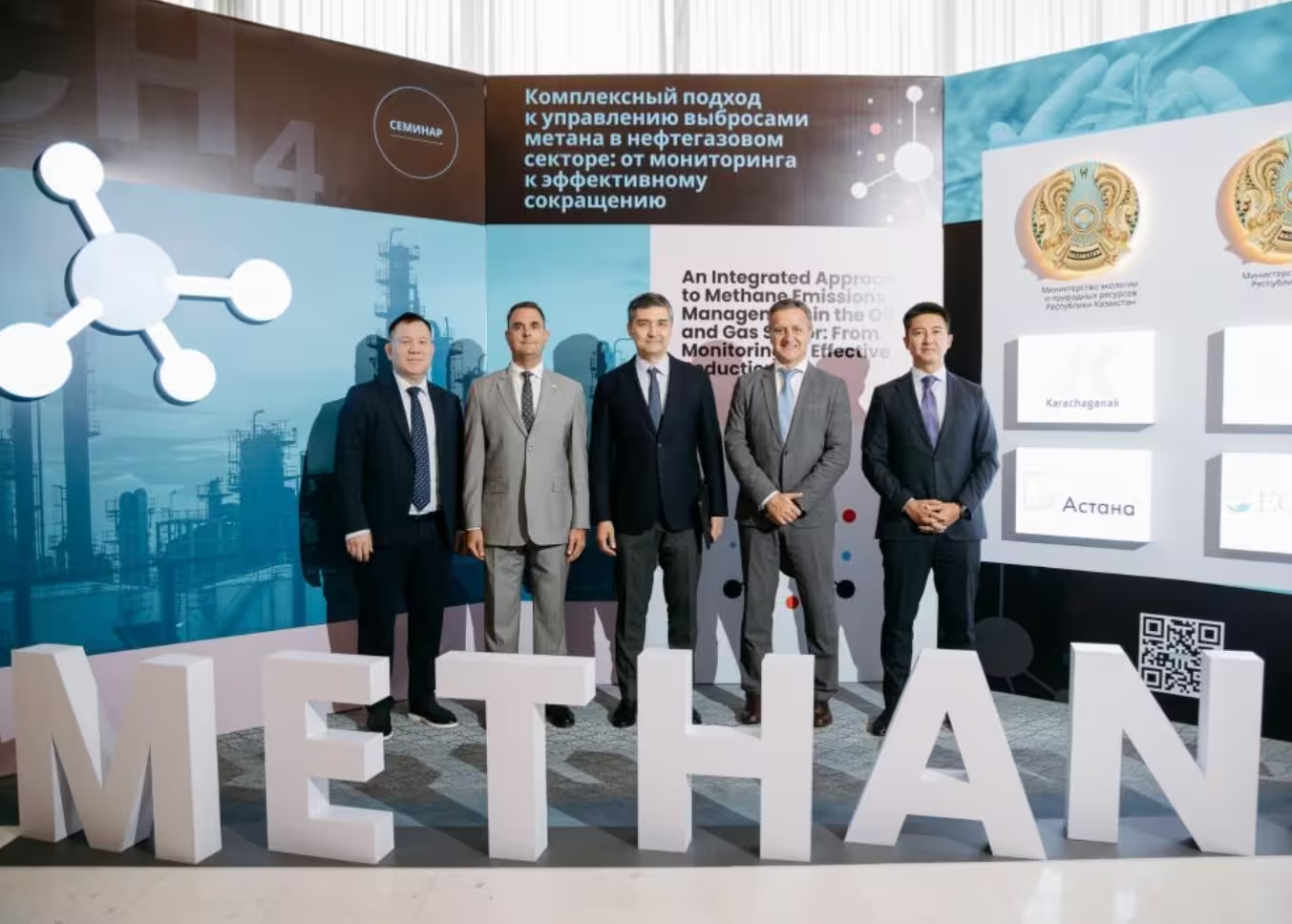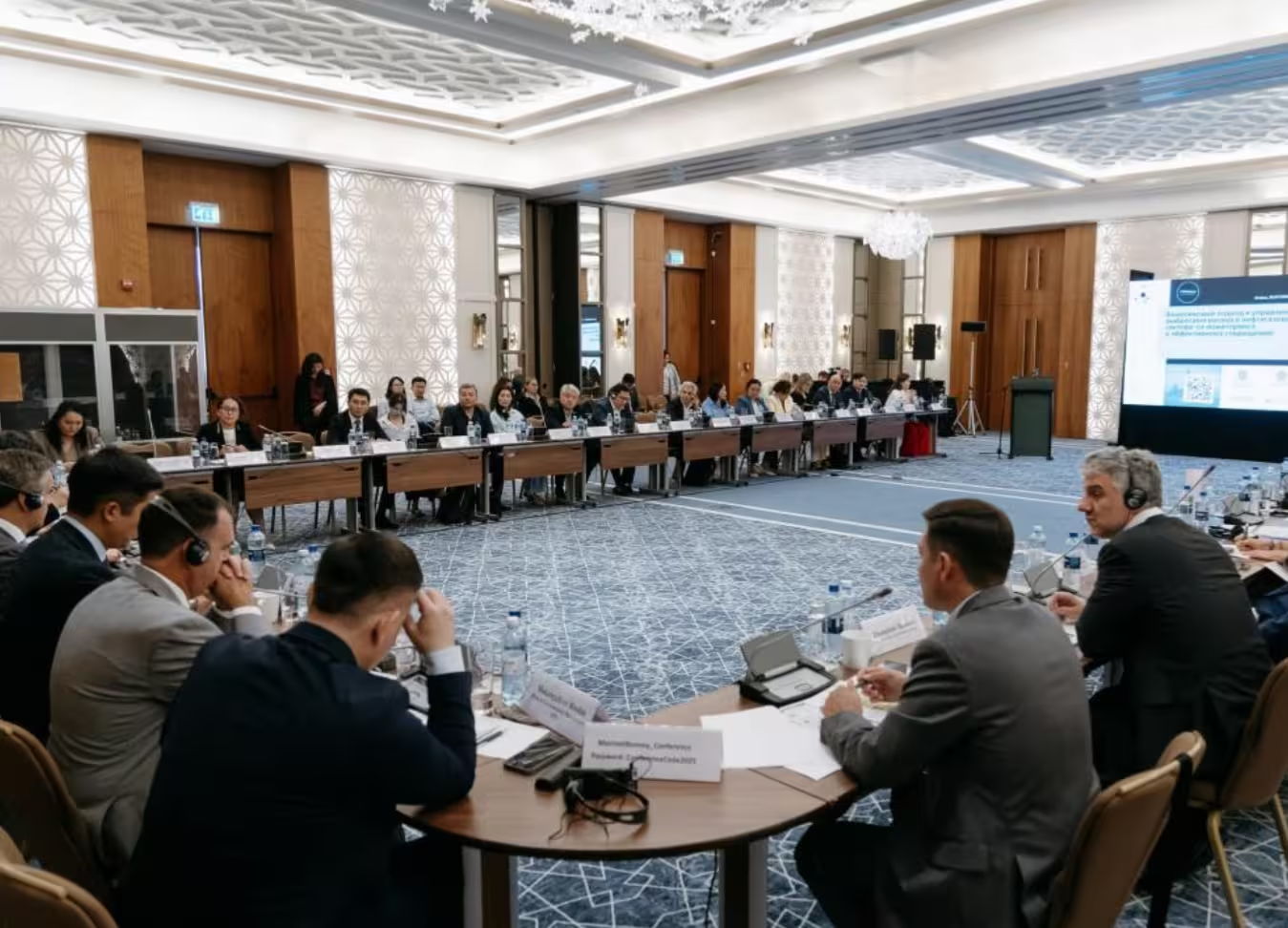The Ministry of Energy of Kazakhstan reaffirmed its commitment to global climate action during an international seminar on reducing methane emissions in the oil and gas sector. The event served as a platform for Kazakhstan to share its national experience and ongoing efforts aimed at cutting methane emissions across the production chain.

Methane, a potent greenhouse gas, is released at every stage of oil and gas operations — from extraction and processing to transportation and storage. Reducing these emissions is widely regarded as one of the most effective short-term strategies for combating climate change.
Kazakhstan, a major oil and gas producer, joined the Global Methane Pledge in 2023, committing to reduce methane emissions by 30% by 2030. The Ministry of Energy has since taken decisive steps to translate this pledge into action, working closely with international partners to strengthen the legal and regulatory framework governing emissions control.
Mandatory standards have been introduced to track, monitor, and manage methane emissions. Leading Kazakh oil and gas companies are deploying advanced technologies such as optical gas analyzers, drones, and satellite systems for leak detection. Infrastructure upgrades — including new compressors and vapor recovery units — are also underway.
As part of its cooperation with the Organization for Economic Cooperation and Development (OECD), Kazakhstan has developed an Action Plan for 2025–2026. This roadmap outlines a set of strategic actions to reduce emissions and attract climate financing through joint projects.

One area where Kazakhstan has already seen significant results is gas flaring reduction. In 2006, 3.1bn cubic meters of gas were flared. By 2024, this number had dropped to 0.3bn cubic meters — despite an increase in total gas production to 59bn cubic meters. This over 90% reduction was made possible by legal reforms and the expansion of gas processing infrastructure.
National energy companies are also stepping up. KazMunayGas and QazaqGaz, two of Kazakhstan’s largest state-owned enterprises, have joined the Oil and Gas Methane Partnership 2.0 (OGMP 2.0). This initiative aims to improve transparency, monitoring, and technological innovation in emissions reduction.
KazMunayGas, in collaboration with Norwegian firm Carbon Limits, is preparing to implement a large-scale LDAR (Leak Detection and Repair) project. Meanwhile, QazaqGaz is adopting a data-driven approach to emissions monitoring and plans to launch a pilot project using MIST software in 2025, following the signing of a cooperation memorandum with Carbon Limits.
Karachaganak Petroleum Operating (KPO) is also working to meet the OGMP’s “gold standard” by 2025 by developing an advanced emissions monitoring and reporting system.
Speaking at the seminar, Vice Minister of Energy Bakytzhan Ilyas emphasized the dual importance of environmental responsibility and operational efficiency:
“Reducing methane emissions is not only a matter of climate responsibility, but also an element of effective and technological management of the industry. Kazakhstan strives to be part of global solutions and will continue to strengthen international cooperation, implement best practices and ensure sustainable development of the oil and gas sector.”
Despite the progress, challenges remain. Access to green financing and the adoption of innovative technologies are critical to scaling up emissions reduction. The Ministry of Energy highlighted the importance of international collaboration, knowledge-sharing, and financial support to overcome technological and organizational barriers.
Follow Daryo's official Instagram and Twitter pages to keep current on world news.
Comments (0)